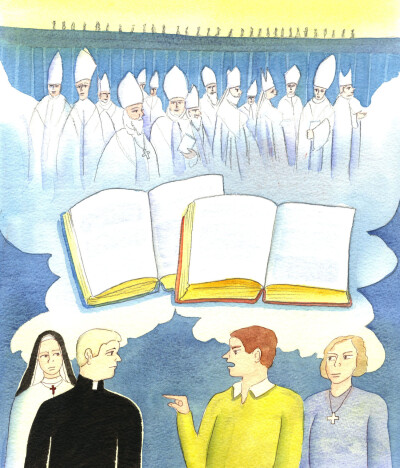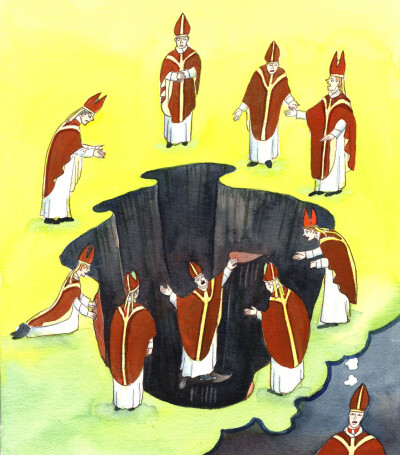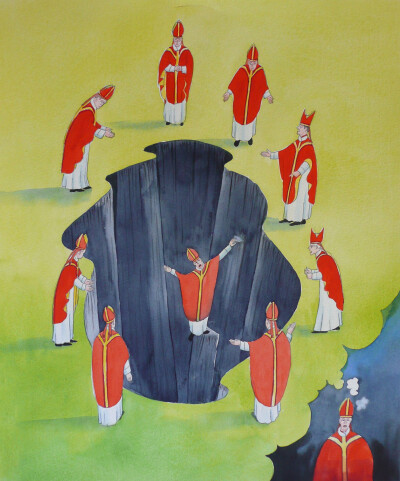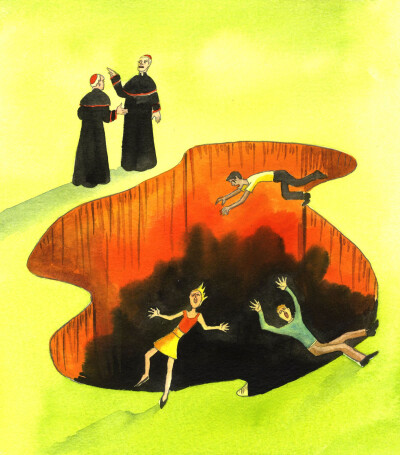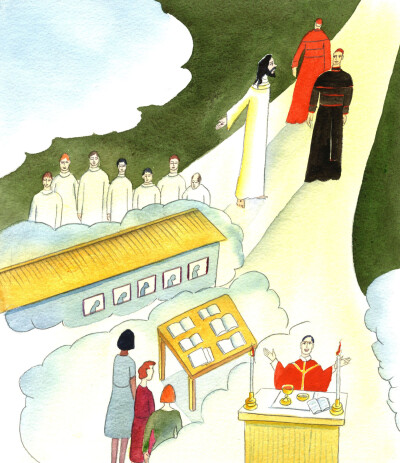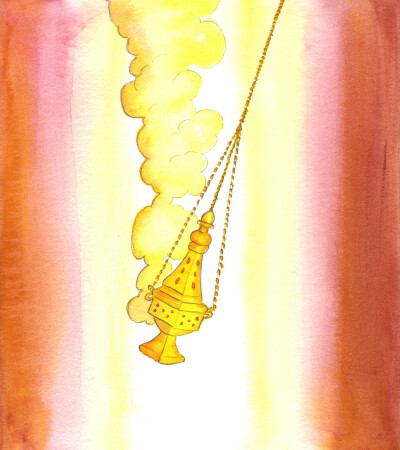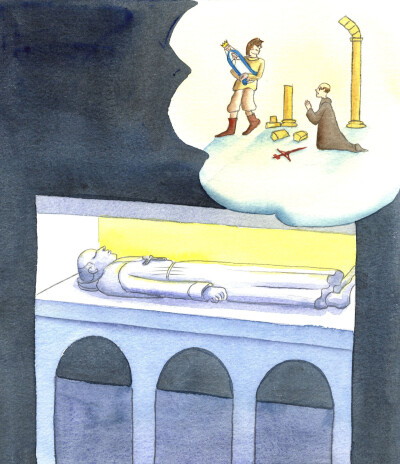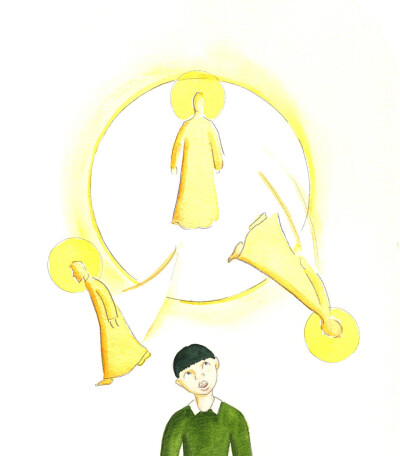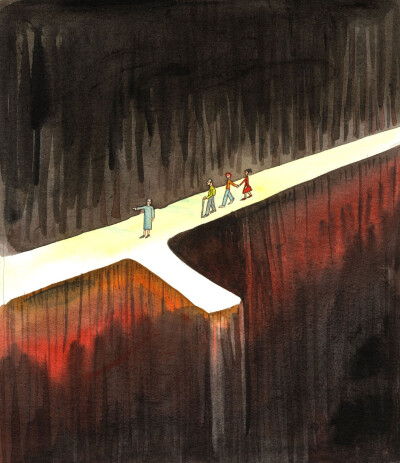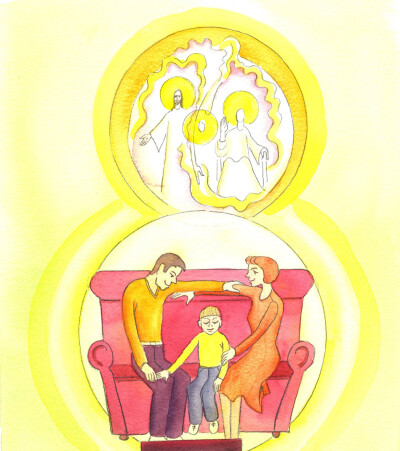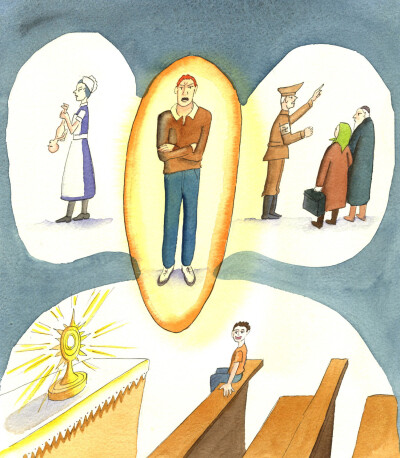Search Page
Showing 61 - 80 of 94
Children are in moral and spiritual danger - as if near the edge of the Abyss - wherever educationalists and catechists work harder to boost self-esteem than to teach the true Faith, and where they leave out talk of sin and repentance, Heaven and Hell. They should give firm warnings against immorality, drunkenness, pornography and violence.
The Church was badly damaged by changes, events, opinions and foolish decisions that followed the Second Vatican Council, and by misinterpretations of Council documents on catechesis, evangelisation, the Sacred Liturgy and Ecumenism. The Lord has acted, for example through some of the New Movements, to mend the damage, and to restore faith in the constant teachings of the Church.
A priest who is dispirited about the state of the Church should resist temptations to leave and to enjoy earthly pleasures. By the altar, he can receive power from God, to help him to renew the Church, and to encourage people towards obedience to God, sound Catechesis, profound reverence in prayer, and respect for the Pope, as well as love for the needy.
We can picture a Bishop in Purgatory, thinking of how he would re-appear to his fellow-Bishops, if he could, to say how much he now regrets his past silence on the subject of invalid Orders, and on sexual immorality - including contraceptive use. In failing to teach his flock, and failing to speak the truth to others, he has only avoided Hell because he was badly taught, when he was being catechised, and then trained to be a priest. All that the Church teaches is true.
We can picture a Bishop in Purgatory, thinking of how he would re-appear to his fellow-Bishops, if he could, to say how much he now regrets his past silence on the subject of invalid Orders, and on sexual immorality - including contraceptive use. In failing to teach his flock, and failing to speak the truth to others, he has only avoided Hell because he was badly taught, when he was being catechised, and then trained to be a priest. All that the Church teaches is true.
It is sad to see some Bishops squabbling about comparatively unimportant matters, while, close by, people are falling into the pit - into Hell - because of their own freely-chosen actions. Those sinful people who died unrepentant are responsible for their fate; but they were not helped by Bishops who might have taught them the Faith in its fullness, with fervour, and so steered them away from danger.
In giving us hundreds of beautiful, joyful, spiritual images, Christ wants us to know that He leads us by love, not by threats of punishment; yet for a full catechesis (as shown in the recent few dozen paintings of the Radiant Light series) there must also be serious mention of death, Hell and Satan, to show the Eternal consequences of unrepented grave sin and the loss of God, in ways people can understand.
When a new Bishop is appointed, he should know what his Master, Christ, is inviting Him to examine, as he begins his care of a new Diocese. The Bishop will ask about his priests, and their well-being. He will look at the Seminary, and its training. He will ensure that catechesis is well-organised, orthodox and wholehearted; and he will see whether the Sacred Liturgy is celebrated in a way which gives glory to God, and every possible help for the education and salvation of souls.
It is not the Bishop's primary task to encourage people to 'save the planet' or merely to leave the world a better place - though we are trying to build God's Kingdom. The Bishop is a man who stands in front of the Abyss, his arms upraised, preaching, as he strives to lead his flock to repent of their sins while they can, to confess them, and to lead holy lives in preparation for Heaven.
An orthodox and fervent form of catechesis is badly needed. Things began to go wrong thirty years ago when many tabernacles were moved to unsuitable, make-shift chapels unworthy of our Divine Saviour. Christ's Real Presence is ignored or forgotten. Children were taught little about His Presence. Attention was paid, frequently, more to the community than to almighty God.
Everyone has a desire to pray, unless it is stifled by false teaching. Almighty God sees and hears everything that is said or done by people on earth. He loves everyone; yet those who have freely chosen to repent and to believe in His Son and to share His life through Baptism can be confident that God hears them because they already live 'in Christ', as if enclosed in a great flame of Divine charity which has reached out across the Abyss which separates earth from Heaven. Children of God should be confident in prayer.
When people are taught about the Mass, the focus of the teaching should be on God, to Whom our prayers rise up like incense, and on what we can understand about our relationship with God the Father, through His Son, in the Holy Spirit. That is even more important that what is true about the Mass as a gathering of the Faithful.
There is often too much emphasis on the gathered people, in catechetical teaching about Mass. The smoke of incense rises towards the Godhead, as do the prayers of the People of God. The greatest prayer is the Holy Sacrifice of the Mass, which is Christ's prayer, offered from within our midst, from the altar, through the priest who offers the Holy Sacrifice. Teaching about the Mass, therefore, should be focused primarily on God. There should be vigilance, about childrens' textbooks.
Out of love and concern for children, St. John Vianney founded an orphanage; but he did more than that. He visited, daily, and taught the children the Catechism, so that they would become holy children, holy adults, and then Saints in Heaven.
The history of the Catholic Church is one of struggle, then joy. Christ asks us all to be hopeful, no matter how dire the problems we see in the Church in our era. Some people in past ages have gone to their deaths, not knowing how a terrible crisis would be overcome, for example, at the Reformation, in England, and more recently in the chaos following the Second Vatican Council. But there will soon be great improvements in the Sacred Liturgy, and then in Catechesis.
It is difficult to describe a sublime, holy Mystery. Some people describe the Blessed Trinity as a Community, but stress the unity of the Godhead. Others describe God as 'a family'. This is unwise, in that it can lead children to imagine three Persons who are not merely distinct but separate from One Another, each going His own way to do His own tasks, whereas the truth is that the Divine Persons act together, no matter what appropriation we attribute to One or the Other.
We are told by some critics that we use an old-fashioned phrase if we say we hope to save souls, by the grace of Christ. But that is what we do indeed achieve, by His grace, if we follow the promptings of the Holy Spirit, and guide people away from sinful ways of living that are like a cul-de-sac ending in the Abyss.
Are we handing on the Faith? Christ asks us to teach the Faith to our children. If we do that, we share a priceless gift, but also strengthen the family, which is precious. A family replicates the life of God. It is important for us to know how to live, and how to love with Divine charity, so that we will all be saved.
Carelessness can be the first step on a path that leads to terrible results. Carelessness about life leads to the deaths of innocent babies by abortion. Carelessness about our neighbour's welfare leads to silence when they are harmed by an evil regime. Carelessness in catechesis can lead to gross irreverence towards Christ our God and Saviour, and to uncharity towards the neighbour who prays - and even to carelessness about the moral law, and about sin and death.
Just as the turning-around of a great liner takes up many miles, renewal in the Church is a lengthy process, now being helped by the New Movements. It is necessary because of decades of disobedience, outright dissent, and inadequate catechesis; yet it is lengthy because it takes a long time to slow down the foolish and unnecessary projects and programs in the Church.
Showing 61 - 80 of 94


